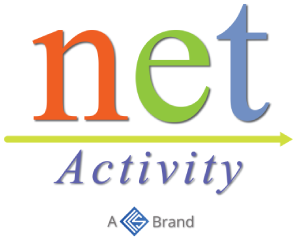Is Your Employees’ Social Media Behavior Impacting Your Business?
Social media: love it or hate it, it has transitioned from a casual pastime to a business necessity in the relatively few years it has been around. However, as beneficial as it can be to your business’ efforts, it can easily have the opposite effect if it isn’t used appropriately.
Let’s explore this increasingly complicated topic, including what needs to be done to ensure that your business’s social media presence isn’t actually harming its success. We recommend that you also share this information with your employees, even directing them to this blog to read it for themselves.
What Are You (and Your Employees) Comfortable with Sharing?
It is fair to say that a business is representative of the people who work in it and vice versa. This is why it is so important to establish a culture within your organization beyond a unified stance on cybersecurity or the ways that you keep your team members motivated.
This relationship is also precisely why it is so crucial for there to be an understanding of appropriate social media use.
While we’ve long been proponents of maintaining a proper work/life balance—especially when working from home—some elements simply can’t be completely separated from one another. One of these elements is the impression that can be generated in response to behavior on social media… whether it’s the behavior presented on your business’ official profile, or on the personal profiles that your employees maintain for themselves.
This behavior can result in serious consequences that directly affect the business’ success, which means that you will need to address this behavior to the best of your ability… even if that ultimately means that an employee is let go for what they’ve posted on social media.
“This Sounds Like an Infringement of My First Amendment Rights!”
Many would argue that the first adjustment made to the United States Constitution would bar an employer from restricting what an employee can say on social media or terminating their employment due to their online activity. As it turns out, this is not the case.
For the sake of clarification, let’s consider the actual text involved in Amendment I:
“Congress shall make no law respecting an establishment of religion, or prohibiting the free exercise thereof; or abridging the freedom of speech, or the press; or the right of the people peaceably to assemble, and to petition the Government for a redress of grievances.”
While the Amendment strictly bars Congress from legislating control over the populace in these matters, nothing there dictates that a business cannot prohibit an employee from publicizing a particular view or that bars the business from levying out consequences should these views be publicized. In plain English, the First Amendment applies to the government and the government alone. Businesses can set conduct expectations as they please.
Speaking of which, it is important to outline a few practices that your team members should follow as they engage on their social media accounts (and that you should subscribe to with your business’s social media activity as well). While social media grants an incredible amount of power, it also comes with great responsibility and consequences.
Social Media Practices Every Business (and User) Needs to Follow
Be Extra Considerate About Images and Other Media You Post
There are a few reasons that everyone associated with a business needs to think before they share something online. Let’s consider the business side of things first.
Have you ever taken a photo that looked passable enough at first glance but featured something that you would have really rather not preserved in a photograph on further inspection? The Internet is filled with such unintentional photobombs, making it clear that even glaring details can be missed at the moment.
For example, when in the office, sharing pictures of your team hard at work or otherwise interacting with one another can help personalize your team and engage your social media followers that much more. However, if sensitive data happens to be visible on a screen in an image, your social media account would suddenly be classifiable as a data leak.
As for your team members, make sure they are cognizant of their role as a representation of your business as a whole. Even in their off-hours, they remain one of your team members, so sharing inappropriate images on their social media ultimately reflects poorly on your organization as well.
Remember That the Internet Never Really Forgets
Even when it’s posted on a personal account, the content that your team members share reflects on your business as well. Unfortunately, if someone enjoys stirring the pot online, any ill feelings felt about them could leach back to your business’ reputation by proxy… and even if they delete their more inflammatory posts at some point, they won’t really be completely gone. The reality is that there are dangerous consequences of posting pics.
This also ties back to our previous point, in that an employee talking too freely on social media about their work could easily expose data and information that should have remained private. Regardless of the time they are using social media, they need to keep the workplace in mind and conduct themselves accordingly.
Keep a Level Head
Likewise, social media is not the place to lose one’s temper, either as a representative of oneself or of a business. As we’ve established, online trolls are a very real thing, and it isn’t unheard of for people to get fired up about a difference in opinion. While I wish I didn’t have to say it, a business should never lash out at anyone online. There’s a difference between getting angry, and simply caring a whole lot and expressing it appropriately. Your business and, once again by proxy, your team members should always default to the latter option.
Don’t Share Your Passwords
Seriously, just don’t. Also, you and your team members should be following the same best practices at home as we recommend in the office—using a different password for each proof of identity, ensuring that these passwords are strong enough, and otherwise boosting how effective your authentication measures are. While passwords may not be totally effective on their own at preventing breaches, there is no reason to make it simple for an unauthorized person to get in.
Watch Out for Phishing Attempts
While phishing may be most commonly associated with email, social media posts and ads can also be used to swindle an employee. Your team needs to understand more than just how to spot a potential phishing attack… they need to be aware that these kinds of attacks can come from all angles.
This is Why You Need to Establish a Social Media Policy
Like any other of your business’ assorted requirements, your team members should be made aware of the expectations you have of their conduct on these platforms while they are under your employ. Not only should this policy lay out the rules they are to follow, but it should also clearly describe the consequences of noncompliance. While this may seem excessive, you must insulate your business from untoward influence or scrutiny by association.
It is not unusual for team members to not understand where the lines are and how much leeway an employer has. For example, many remote workers wonder whether or not their boss can monitor their work habits via a webcam. The answer to this question is based on many factors, most importantly what you agreed to when you signed your employment agreement. The same concept applies to your social media presence.
While there will never be a perfectly clean split between an individual’s professional and personal life, you should still try to encourage your team members to separate them as much as possible… particularly on social media.





